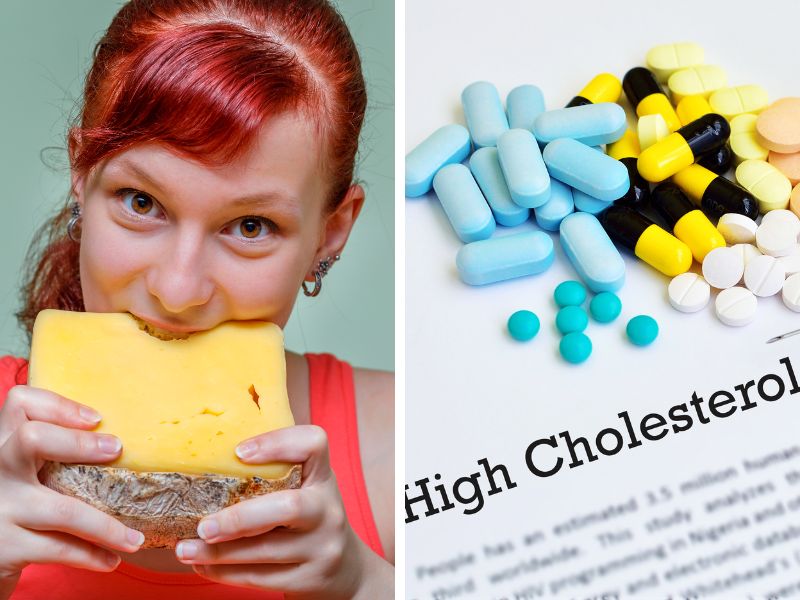High cholesterol levels can be a cause for concern regarding dietary choices. Cheese, a beloved dairy product, is often associated with high cholesterol due to its fat content. However, the relationship between cheese consumption and cholesterol levels is more nuanced than one might think.
Understanding Cholesterol And Its Sources
Cholesterol is a fatty substance produced by the liver and obtained from certain foods, including dairy products like cheese. There are two types of cholesterol: LDL (low-density lipoprotein) and HDL (high-density lipoprotein). While LDL is often called “bad” cholesterol because it can build up in the arteries, HDL is considered “good” cholesterol, as it helps remove LDL from the bloodstream.

Canva. com
Cheese And Cholesterol
Cheese is high in saturated fat and is linked to elevated LDL cholesterol levels. However, recent research suggests that the impact of cheese on cholesterol levels may be more moderate than previously believed. Some studies indicate that the specific types of fats found in cheese, such as medium-chain triglycerides, may not have the same detrimental effects on cholesterol as other sources of saturated fat.
Choosing Wisely: Types And Portions
Not all cheeses are created equal regarding their impact on cholesterol. Opting for low-fat or reduced-fat varieties can significantly reduce saturated fat while providing the rich flavor and texture that cheese lovers enjoy. Additionally, moderation is key. A small serving of cheese as part of a balanced diet is unlikely to cause significant cholesterol-related issues.

Canva. com
Pairing With A Heart-Healthy Diet
Balancing cheese with other nutrient-dense foods is a way to integrate it into a heart-healthy diet. Fruits, vegetables, whole grains, and lean proteins should form the foundation of any cholesterol-conscious eating plan. This way, the benefits of cheese, including its calcium and protein content, can be enjoyed without compromising heart health.
